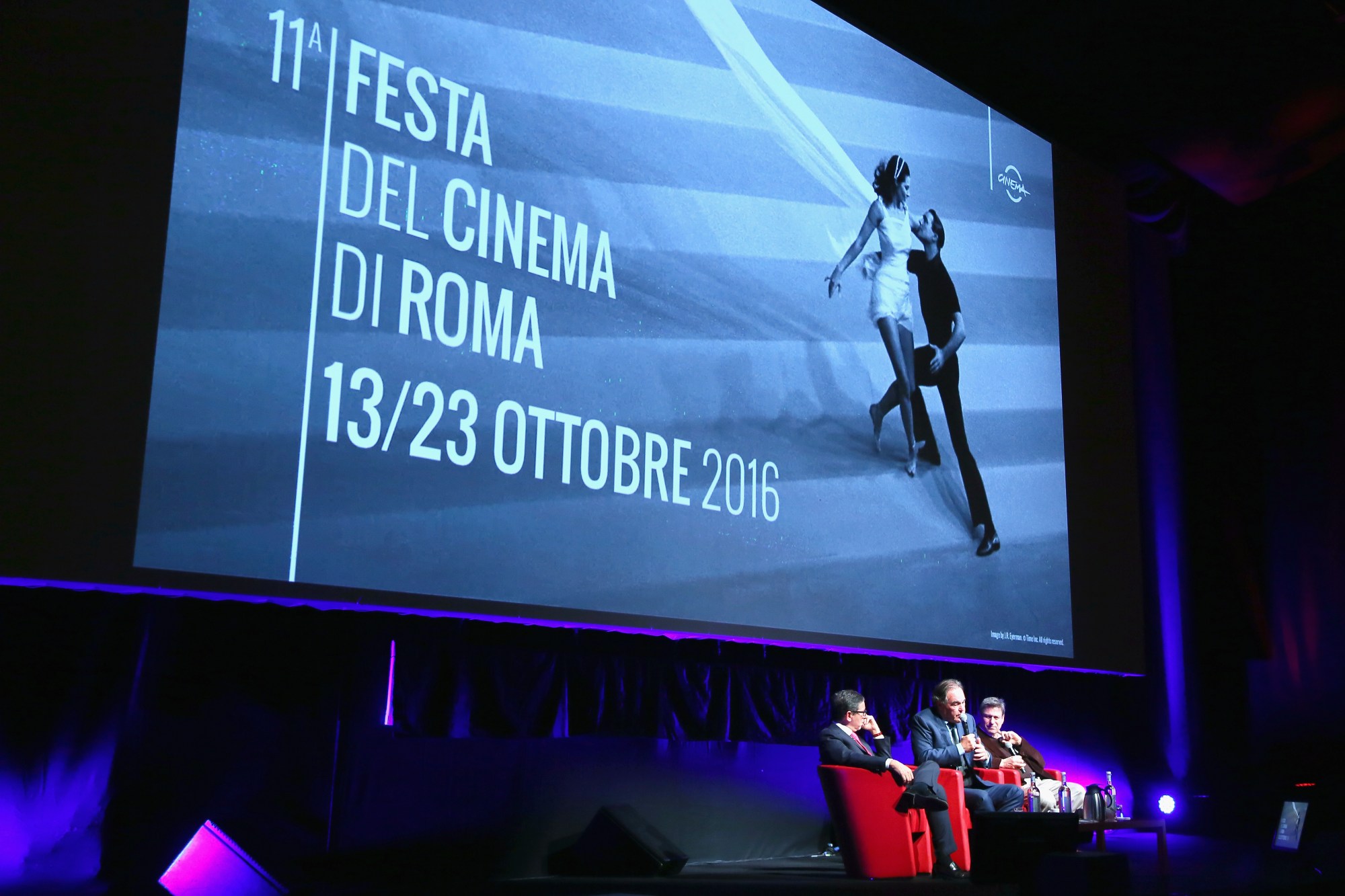
- Festivals
Politics Meet Commedia Dell’arte At The 11th Rome Film Festival
The 11th edition of the annual Rome International Film Festival kicked off on October 13 and will run until October 23th under the artistic direction of Antonio Monda. The Auditorium Parco della Musica, in Rome, is once again the main venue for the Fest where two-time Academy Award winner Tom Hanks took the stage for a conversation with the audience followed by a screening of scenes from some of his films, like Philadelphia, Forrest Gump and one he is particularly fond of That thing you do. At the end of his onstage conversation, the iconic star of three decades of American film was handed the Festival’s Lifetime Achievement Award by the grand diva of Italian cinema, Claudia Cardinale, the festival, which is also devoting a major retrospective to Hanks’ films, bade farewell to Nobel laureate Dario Fo, who died on October 13th at the age of ninety. As a tribute to the Nobel laureate master of “Commedia dell’Arte,” the festival screened Lo Svilato (1956) by Carlo Lizzani, starring Dario Fo, who also served as screenwriter for the film. “A total artist, capable of capturing audiences at every performance, explained Antonio Monda in a press release.
Social and political themes, such a job uncertainty, and the American elections play an important role in the Italian capital’s premieres. The festival line-up offers a total of 40 titles, starting with opener Moonlight, by Barry Jenkins, an intense, lyrical meditation on identity, friendship, family and love. The film was followed by the three Italian films in the official selection (7 Minutes, Sun heart Love, Maria per Roma) which speak of the daily struggle of people to overcome the limits of their environment while preserving an affective outlook on life. Also in the eclectic program the powerful and polemic Birth of a Nation, by Nate Parker, and Snowden, by Oliver Stone.
This year’s edition is presenting films dealing with immigration, such as Elia Kazan’s America, America (1963) and Gianfranco Rosi’s documentary Fire at Sea, winner of this year’s Golden Bear in Berlin and a special section of 16 films, devoted to American politics, starting with Robert Rossen’s All the King’s Men followed by Robert Redford’s The Candidate, Steven Spielberg’s Lincoln, Barry Levinson’s Wag The Dog and Warren Beatty’s Bulworth. Oliver Stone will take the stage to share his thoughts in the section “Close Encounters,” along with several other guests with strong political views, such as Meryl Streep, David Mamet, Viggo Mortensen and Vanessa Redgrave.
The 11th edition of Rome Film Fest, has chosen to pay tribute to such filmmakers as Citto Maselli, screening some of his most important films. Also in the program, Andrzej Wajda’s Man of Marble, Luigi Comencini’s Le Avventure di Pinocchio, Gregory Peck’s Roman Holiday, Mario Monicelli’s L’Armata Brancaleone, and Michael Cimino’s The Dance scenes chosen by Cimino, a film containing the greatest dance scenes personally selected by the director.
Meanwhile, at the Auditorium Parco della Musica, the Rome Film Fest, in collaboration with the Cineteca di Milano, is hosting a precious exhibition of 50 photographs taken by Luigi Comencini between 1945 and 1948, all of them black and white. The images bear witness to the difficult and precarious post-war years, and at the same time anticipate some of the themes that were most important to Comencini: his sensibility towards children and poverty, his ability to tell a story within a frame. These photos are also the subject of a book, Luigi Comencini. Italia 1945-1948, published by Humboldt Books. At the same location, the production company “In Between Art Film,” presents the audio-visual installation Magnificent Obsession, by the Swiss artist and filmmaker Matthias Brunner who brilliantly assembled fragments of 36 masterpieces of European and American film from the 1950s and ‘60s, aiming to explore the intriguing and ever-shifting borders between the arts and audio visual works while examining the bonds between film and literature in those two post war decades.

